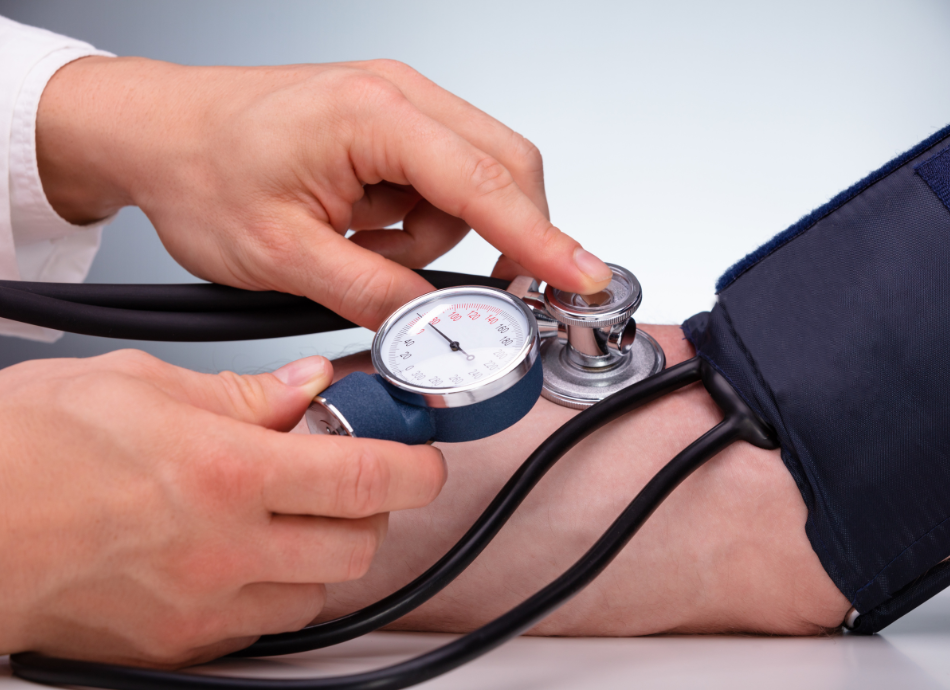You can now add Healthify as a preferred source on Google. Click here to see us when you search Google.
Blood pressure tips
Ways to manage high blood pressure
Key points about how to lower your blood pressure
- High blood pressure is common in Aotearoa New Zealand. About 1 million New Zealanders are living with high blood pressure and 350,000 don't know they have it.
- Untreated, it can lead to serious health problems such as heart attack, stroke and kidney failure.
- There may not be obvious signs that your blood pressure is high, so the best way to find out is to check it yourself, or have it regularly checked by your healthcare provider or pharmacist.
- High blood pressure can be managed with healthy lifestyle changes and/or medication.

1. Quit smoking
Smoking dramatically increases your risk of stroke and heart disease as well as a number of other conditions. Smoking causes your arteries to narrow (as high blood pressure does). If you have high blood pressure and smoke, then you have an even higher risk of stroke and heart disease.
A great way to start is by reducing the number of cigarettes you smoke each day. Every time you have a craving, you can try deep breathing, drinking water, or having a healthy snack (such as an apple or vegetable sticks) to help you overcome your craving. You can also ask your healthcare provider for an appropriate referral and prescriptions to help you quit smoking.
2. Get moving
Exercising and maintaining a healthy weight is important in reducing your risk of high blood pressure. Make it something you enjoy, such as walking, gardening, swimming or cycling. Just 30 minutes a day of moderate activity can reduce your risk of heart disease.
3. Eat a healthy diet
Eating a healthy diet that’s low in saturated fat and high in fruit and vegetables will help reduce the risk of high blood pressure. Drink water and avoid drinks high in sugar, such as fizzy drinks. Also, limit your intake of drinks containing caffeine (eg, coffee, tea, energy drinks and coke) as it can raise your blood pressure for a while. Instead drink water, or decaf coffee or herbal teas.
4. Reduce your stress
Stress isn't good for your blood pressure, especially if it’s ongoing. Try some activities that reduce stress such as meditation, mindfulness or deep breathing. If possible, make lifestyle changes to reduce your stress levels such as finding a better work/life balance or changing jobs. Talking to a friend or health professional about your stress and what might be causing it, and getting help is important.
5. Limit alcohol
Too much alcohol raises your blood pressure and is not good for your overall health. Find out about the low-risk drinking advice for adults.
6. Limit salt
Salt causes your body to hold onto fluid, which increases blood pressure. Cutting back on salt can therefore help prevent high blood pressure. Processed food and takeaways can be very high in salt (and saturated fats) so cooking at home using fresh ingredients and natural flavourings (garlic, lemon, herbs) instead of commercial sauces and pastes reduces the amount if salt in your food. Read more about how to cut back on salt.

Image credit: Freepix
7. Avoid large amounts of liquorice
Did you know liquorice contains a substance (glycyrrhizic acid) that can raise your blood pressure and affect your heart rhythm? Eating more than 57g a day for at least 2 weeks, or eating a large amount in a short space of time, can have serious consequences. Liquorice can also interact with some medicines, such as diuretics.
8. Take prescribed medicines
There are medications available to lower blood pressure. These must be prescribed by a healthcare provider.
9. Maintain a healthy weight
Having a healthy weight will also help to lower your risk of having high blood pressure. Sometime making lifestyle changes can be hard as you may be overwhelmed with where to start. See if there is a health coach available at your general practice to support you with your health goals.
10. Sleep
Having 7 to 9 hours of good quality sleep 7per night is also important with helping to lower high blood pressure. If you're not having enough sleep this impacts on your body's abilities to function well. Reducing screen time before bed and having a bed time routine are some ways to help with having good sleep. It may also help to get checked for sleep apnea if you snore a lot. Read some tips for sleeping better.
If you have any concerns or questions about your blood pressure, please contact your healthcare provider.
6 ways to lower blood pressure(external link) Heart Foundation NZ
Blood pressure matters(external link) Heart Foundation NZ
References
- Managing high blood pressure(external link) Heart Foundation, NZ
- Preventing high blood pressure(external link) WebMD, US
- Liquorice – all sorts of side effects and interactions(external link) Medsafe, NZ, 2019
- How liquorice can raise blood pressure(external link) Blood Pressure UK, 2024
- New Zealand adults who have raised blood pressure(external link) Figure NZ, 2024
- Blood pressure and your heart(external link) Heart Foundation, NZ
Credits: Healthify editorial team. Healthify is brought to you by Health Navigator Charitable Trust.
Reviewed by: Roselyn Singh, Health Coach, Auckland
Last reviewed:





